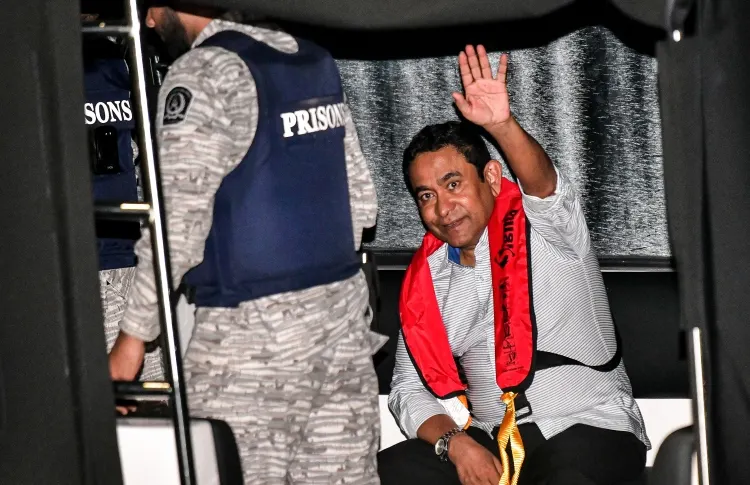The Maldivian Supreme Court has dismissed a petition filed by former president Abdullah Yameen, currently in jail over corruption charges, through which he was trying to restore his rights to contest the presidential election.
Yameen is serving 11 years in jail for money laundering and bribery from his time as the president. Now the foremost opposition leader, he has been nominated by the opposition political parties as a presidential candidate. However, under Maldivian laws Yameen cannot contest the election as long as he remains convicted.
Even the Maldivian Election Commission has said that it will not accept Yameen’s candidacy till his sentence remains in force.
According to The Times of Addu, Yameen’s legal team had filed a case in the Supreme Court seeking to ensure that his fundamental rights and electoral rights, which are being violated due to a delay in hearing appellate cases in the High Court, are protected.
However, the Registrar of the Supreme Court ruled that Yameen’s case did not fall under constitutional matters as defined by the Courts Act, therefore, rendering it void. However, he still has the right to file an appeal against this decision in the Supreme Court.
Yameen was given 11 years in jail by the Criminal Court which said that he had taken $1.1 million as bribe from a company that had leased the Fuggiri island and he had laundered the money. Yameen is known as a pro-China leader who had been running the India Out campaign.
Presidential elections in the Indian Ocean archipelago are slated for September 9.
With Yameen out of the race, the main contenders in the electoral ring are erstwhile colleagues from the Maldivian Democratic Party (MDP) President Ibrahim Mohamed Solih and former president Mohamed Nasheed. The latter broke up from the MDP to form his own party – The Democrats, which was recently registered with the Election Commission.
The election process is being watched carefully by India and China as a change in government will be crucial for its foreign policy. A win for current President Solih will mean that the positive relations between India and its tiny neighbour continue at the same fervent speed, where Prime Minister Narendra Modi and President Solid have close relations.
However, a win for Nasheed, who might be inching towards the opposition parties for an alliance may not bode well for India, unless Nasheed convinces his new-found partners to take a more positive approach towards India. Nasheed, an internationally known democrat, too has held close ties with New Delhi till now.




















